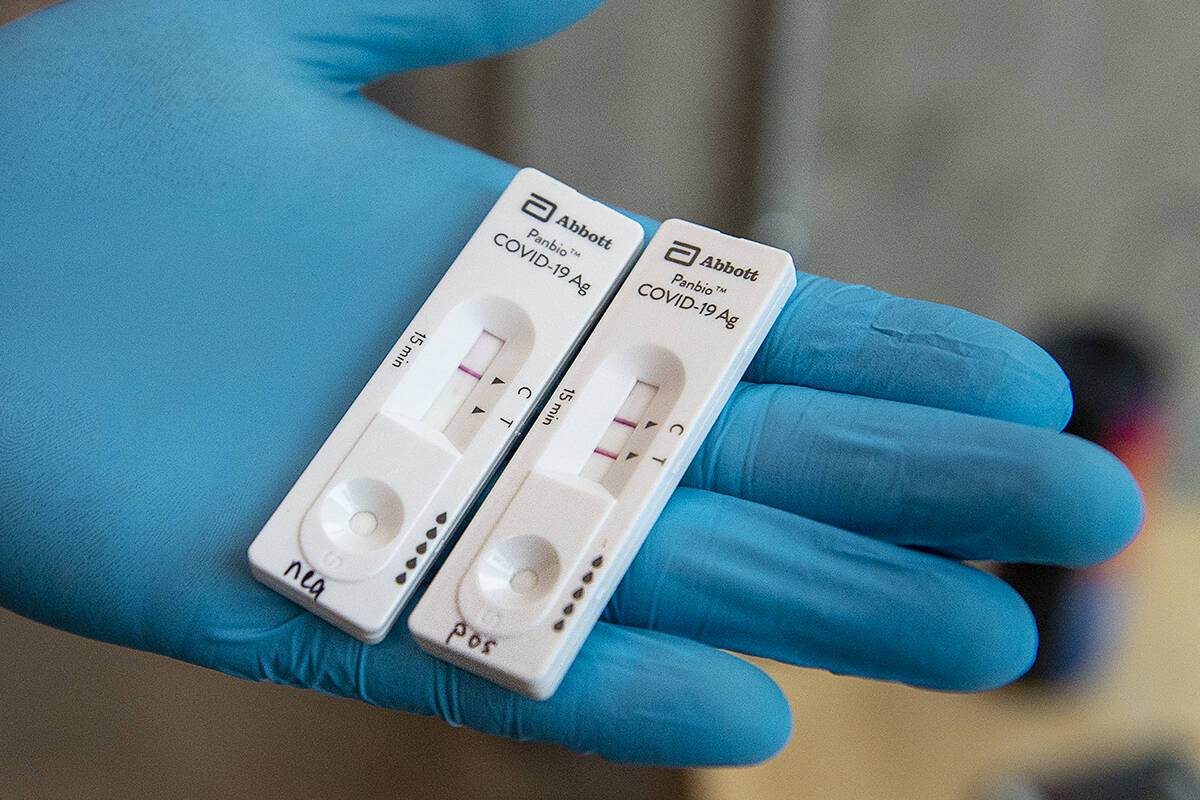The province is deflecting criticism of their approach to rapid COVID-19 testing, saying that B.C. has programs in place to distribute rapid tests and has been doing so.
RELATED: B.C. health experts call on province to use COVID rapid tests alongside other health measures
A spokesperson for the province told Black Press that as of Oct. 30, B.C. has received 2,796,506 rapid test kits from Health Canada and a total of 1,301,089 test kits have been deployed. 429,795 tests have been used with 1,781 presumptive positive results.
Tests are received by the Public Health Services Authority (PHSA) and are kept in warehouses until they are deployed.
Health Canada distribution data shows B.C. has received 3,147,706 tests, deployed 1,022,661 and only used 243,715. The province’s spokesperson said Health Canada’s data has a lag and is out of date by “about a month.”
The Ministry of Health explained the discrepancy between the number of tests received was due to how data is reported by Health Canada to the provinces.
“That report did not contain the October shipments and did not specify the number of PanBio tests BC received labelled as Emergency Supply. Taken together these factors appear to account for the discrepancy.”
B.C. has received three brands of rapid tests: Abbott ID Now, Abbott PanBio and BD Veritor. There has been concern that some tests may expire in warehouses before they can be deployed. However, Health Canada issued guidance that the Abbott tests can be used up to 12 months after their expiry date and the BD Veritor tests can be used up to 10 months after their expiry date.
B.C.’s rapid COVID-19 point of care (POC) testing strategy outlines how rapid tests have been used so far. Under the program, long-term care facilities, shelters, post-secondary institutions and private industries like food processing plants, farms and work camps all have access.
Private businesses can apply for testing kits and training through the Business Council of B.C.’s Safe Screen B.C. program in partnership with the PHSA. Businesses will receive free tests but must pay a one-time fee to access ongoing support and training from the PHSA.
“The use of rapid COVID-19 POC testing is likely to change over time. Government continues to review the evidence of POC test usage to understand how best to expand to other settings and will work to expand usage in line with B.C.’s Rapid COVID-19 POC Testing Strategy when appropriate,” the spokesperson said.
Rapid tests are not being used in B.C.’s school system or recreational settings at this time, however, the province said that could change depending on transmission levels.
RELATED: B.C. waiting for new rapid tests to be approved before large-scale rollout in schools
The province said that rapid tests are a valuable tool in the fight against COVID-19 but said they are no replacement for the “gold-standard” PCR tests.
“PCR tests continue to make up the foundation of B.C.’s testing strategy, and B.C. has already completed more than 4.27 million PCR tests – helping guide clinical care for people and the public health response for us all.”
@SchislerCole
cole.schisler@bpdigital.ca
Like us on Facebook and follow us on Twitter.
Want to support local journalism? Make a donation here.

